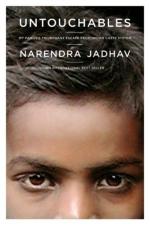
|
| Name: _________________________ | Period: ___________________ |
This quiz consists of 5 multiple choice and 5 short answer questions through Section 6: "Part Six: Backlash".
Multiple Choice Questions
1. Just before the 2008 election, what mailing did many Americans receive that Wilkerson, in "Chapter Twenty-Five: A Change in the Script," says became an "inadvertent leaflet in favor of the Democrat" (312)?
(a) Notifications of layoffs and downsizing at their employers.
(b) Their quarterly statements for their retirement accounts.
(c) An openly racist cartoon paid for by a Republican PAC.
(d) A solicitation for contributions by John McCain.
2. In "Through the Fog of Delhi to the Parallels in India and America," what is one of the main differences that Wilkerson notes between caste in America and caste in India?
(a) There is no attempt being made in modern India to improve the situation of the lowest caste.
(b) The American system is for the most part a binary one.
(c) The lowest caste in India was never enslaved.
(d) Blacks in America are not permanently confined to the lowest caste.
3. In "Chapter Nineteen: The Euphoria of Hate," what film footage does Wilkerson describe?
(a) The last public lynching in Georgia.
(b) The trial of the police officers who killed Freddie Gray.
(c) The liberation of Auschwitz.
(d) Hitler's return to Germany after the conquest of Paris.
4. In "Chapter Five: 'The Container We Have Built for You,'" what unusual name does Harold Hale give his daughter?
(a) Lady.
(b) Miss.
(c) White.
(d) Daughter.
5. In "Chapter Six: The Measure of Humanity," where does Wilkerson say that the idea of race began?
(a) In colonial India.
(b) In Ancient Greece and Rome.
(c) During the Moorish invasion of Spain.
(d) In the transatlantic slave trade.
Short Answer Questions
1. Which of the following is the traditional Indian word for "caste"?
2. In the opening anecdote of the book, what escapes from the melting permafrost?
3. In the 1863 Draft Riots, what immigrant group perpetrated violence against Blacks?
4. What technique does Wilkerson use for the first time in the beginning of "An Old House and an Infrared Light"?
5. In "Chapter Twenty-Six: Turning Point and the Resurgence of Caste," whom does Wilkerson name as the most loyal voters of the Republican Party?
|
This section contains 355 words (approx. 2 pages at 300 words per page) |

|




